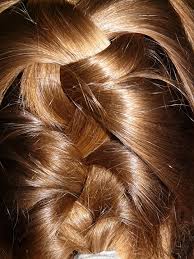How To Treat Hair Loss Naturally?
When you search online for "hair loss treatments", you will find a long list of tonics, creams, and supplements appears. But are these effective and do they work ? Most of these products are not cheap and may have little to no long-term effect. So what are the natural ways to reduce or treat your hair loss?
Here are a few suggestions to manage your hair thinning in a natural way:
Nutrition
Sally Kravich, CNHP, a nutritionist and author, finds in her practice that "vanity is a good way to inspire people (to eat better) -- we all want shiny eyes and radiant hair and skin." Try to get enough nutrients and minerals from your daily diet.
Protein is important to strengthen hair and promote growth. The recommended daily amount is about two to three 3-ounce servings of meat or a combination of four to five servings of dairy and beans. Patients dealing with hair loss are recommended to include nuts and seeds, eggs, and fish in their diets. All are important sources of omega-3 fatty acids, which help lower inflammation and create a healthier scalp. It's best to avoid a rut; eat a variety of foods every day. The healthy recommendation is to consume 6 to 10 servings of various vegetables daily, two to four fruits, and an assortment of grains and legumes and lean meat products.
Here are some nutrients that are helpful for our hair growth:
- Iron: Anemia can cause hair loss. But iron supplements are only recommended if you've tested positive for iron-deficiency anemia.
- Zinc and biotin: These supplements are assumed to help with hair growth because people with metabolic disorders lacking them can have thin or brittle hair and nails.
Hair Styling Recommendation
Straightening
hair irons, curling wands, hair dyes and hair perms can be harsh to you hair.
If your hair is thinning, you don't want it to break as well. Be gentle with
your hair -- don't overdo brushing or washing as well. According to the American Academy of
Dermatology the recommendation is to use hair
conditioner after every shampoo, letting your hair air dry, and limiting the
amount of time curling irons or straightening irons come in contact with you
hair. If you really need to use heat-driven products, do it no more than once a
week.
- Use scalp coloring products to minimize the contrast between your hair and scalp if it's beginning to show through.
- Try hair extensions to boost volume.
- Keep your hair cut short so it doesn't hang and appear thinner.
- Try parting your hair on the side. That takes the focus off the crown, where hair often thins.
- Use body-boosting hair products, which can make hair look thicker.
Manage Stress
Losing your
hair can be stressful. And stress (physical and emotional) can sometimes
increase hair loss. Before
you start to worry about it, go to a doctor or a hair specialist to see if you should worry about
it.








